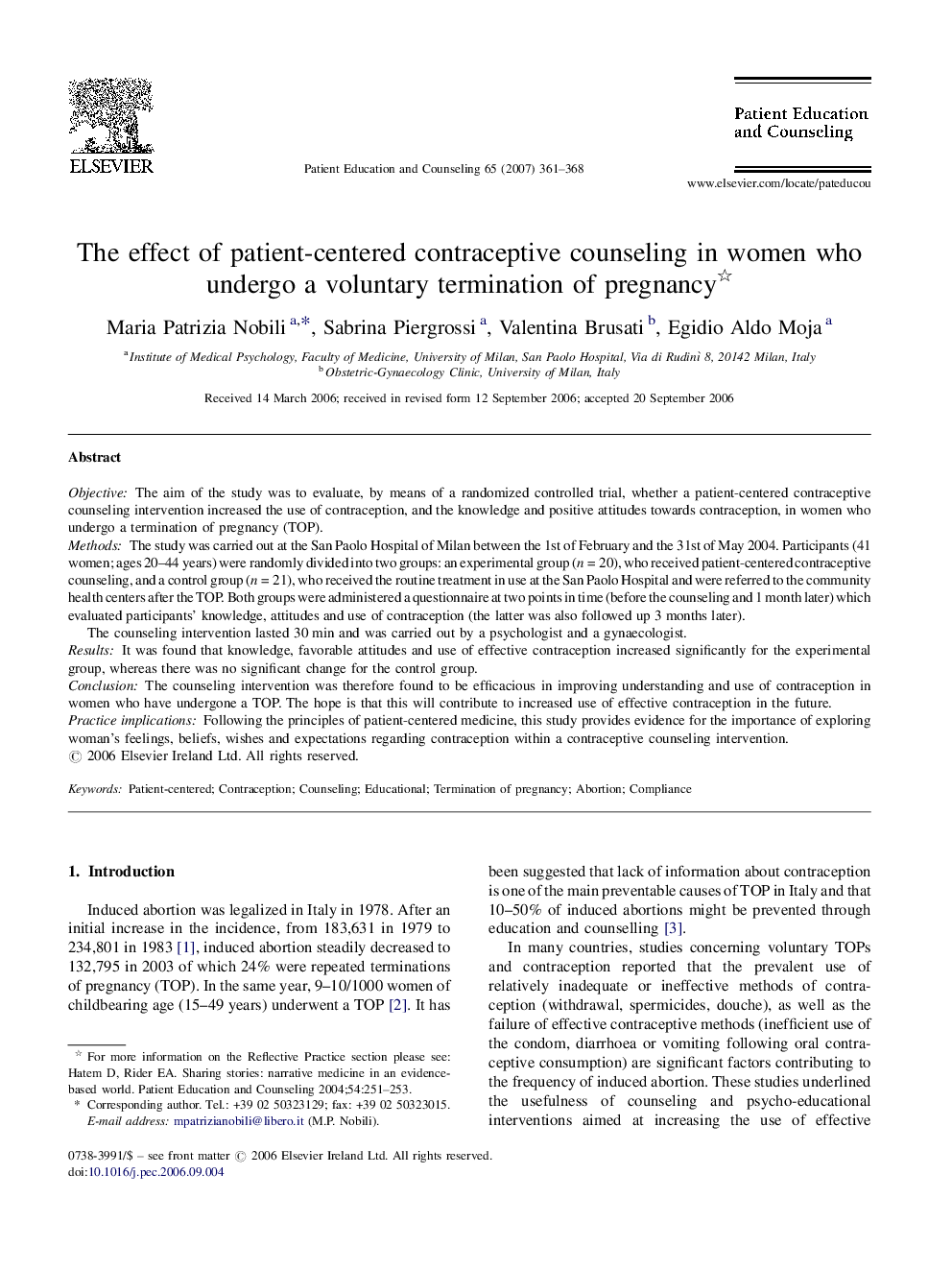| Article ID | Journal | Published Year | Pages | File Type |
|---|---|---|---|---|
| 3815297 | Patient Education and Counseling | 2007 | 8 Pages |
ObjectiveThe aim of the study was to evaluate, by means of a randomized controlled trial, whether a patient-centered contraceptive counseling intervention increased the use of contraception, and the knowledge and positive attitudes towards contraception, in women who undergo a termination of pregnancy (TOP).MethodsThe study was carried out at the San Paolo Hospital of Milan between the 1st of February and the 31st of May 2004. Participants (41 women; ages 20–44 years) were randomly divided into two groups: an experimental group (n = 20), who received patient-centered contraceptive counseling, and a control group (n = 21), who received the routine treatment in use at the San Paolo Hospital and were referred to the community health centers after the TOP. Both groups were administered a questionnaire at two points in time (before the counseling and 1 month later) which evaluated participants’ knowledge, attitudes and use of contraception (the latter was also followed up 3 months later).The counseling intervention lasted 30 min and was carried out by a psychologist and a gynaecologist.ResultsIt was found that knowledge, favorable attitudes and use of effective contraception increased significantly for the experimental group, whereas there was no significant change for the control group.ConclusionThe counseling intervention was therefore found to be efficacious in improving understanding and use of contraception in women who have undergone a TOP. The hope is that this will contribute to increased use of effective contraception in the future.Practice implicationsFollowing the principles of patient-centered medicine, this study provides evidence for the importance of exploring woman's feelings, beliefs, wishes and expectations regarding contraception within a contraceptive counseling intervention.
